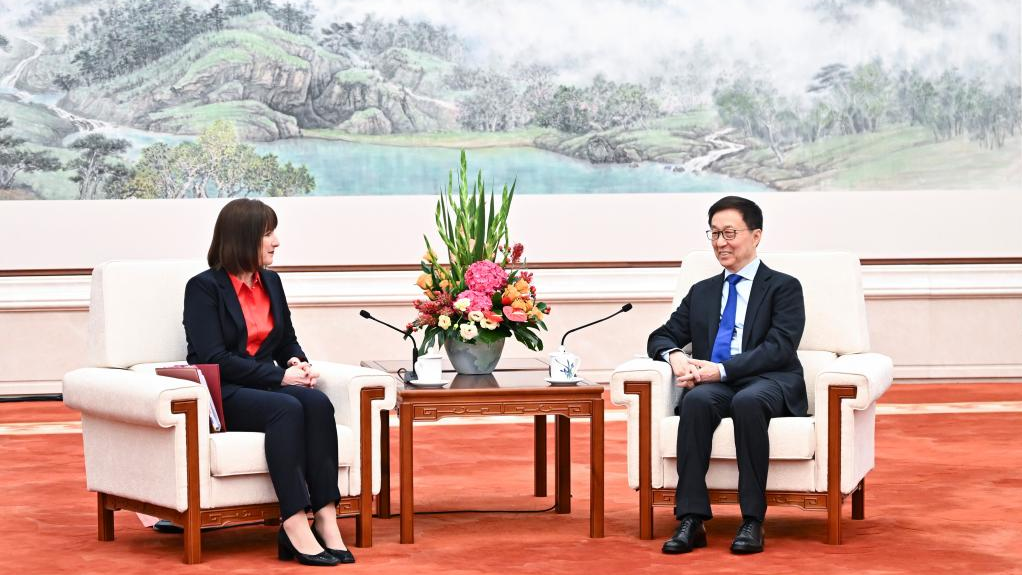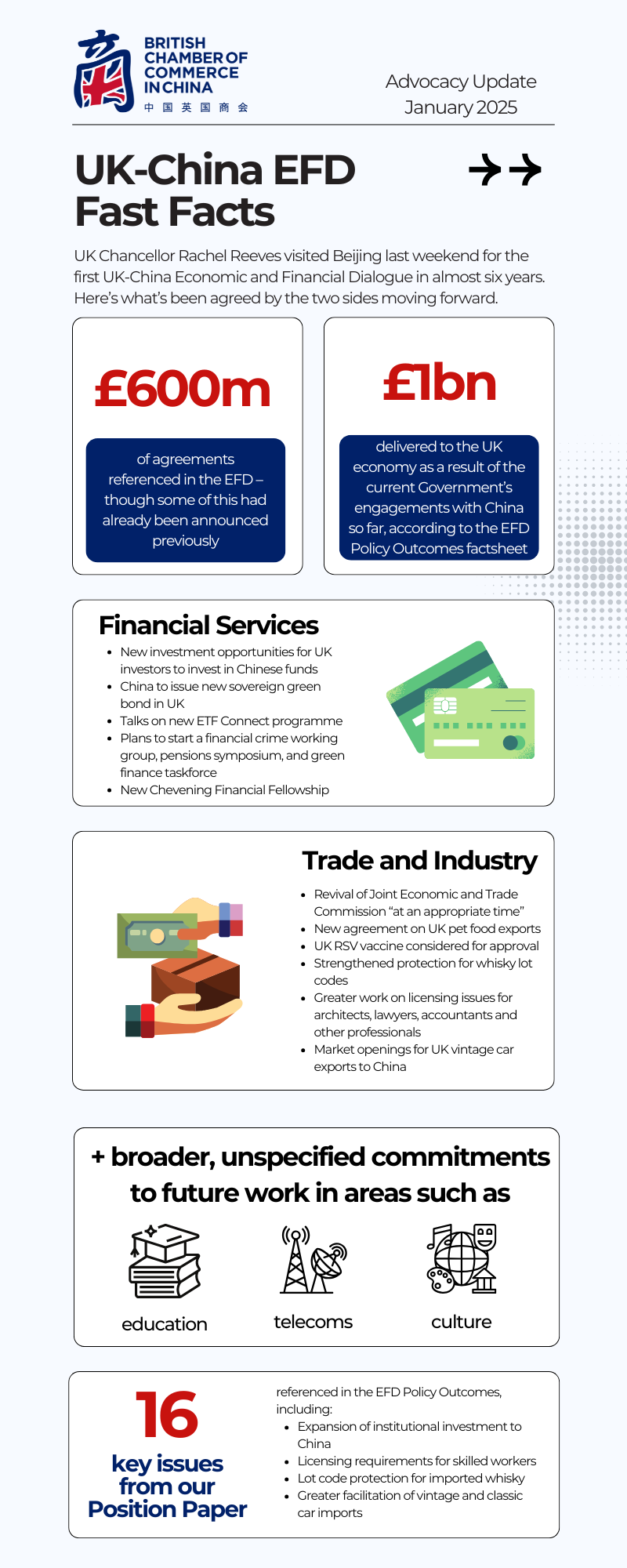Policy Insights: Fourth Plenum signalled confidence and continuity ahead of Xi-Trump summit in Busan
Fourth Plenum signalled confidence and continuity ahead of Xi-Trump summit in Busan

UK Chancellor Rachel Reeves concluded her visit to China last weekend, co-chairing over the first Economic and Financial Dialogue (EFD) to take place in nearly six years. The agreement notes over £600 million (RMB 5.39 billion) of trade openings and links between the UK and China over the next five years, including in areas as diverse as financial firm licences, vaccines, whisky lot codes, and more.
The return of the EFD is a welcome move, despite the ongoing challenges for UK businesses highlighted in our December 2024 Sentiment Survey. While it does not resolve the complex issues that businesses face overnight, it signals an important shift in the UK government’s approach—one that prioritises structured, senior-level engagement. The Policy Outcomes Paper is shorter and more concise than in previous years, but this reflects a pragmatic focus on specific deliverables that will set the foundation for future discussions. Among the paper’s asks, 16 concrete recommendations from the British Chamber were taken forward by government for further action. This includes work on increasing UK institutional investment into China, protection for whisky lot codes, greater support on exporting UK vintage and classic cars, and more.
Following this round of the Economic and Financial Dialogue, the British Chamber of Commerce in China will work with both governments on behalf of members to drive key advocacy concerns. With the promise of resuming the UK-China Joint Economic and Trade Committee (JETCO), fora on pensions, financial crime, and ETF trading, and much more, BritCham looks forward to continuing its push for greater high-quality business growth between the UK and China.

BritCham chair Julian Fisher joined Bloomberg Daybreak’s Tom Mackenzie to discuss the outcomes of the UK Chancellor’s visit on 13th January 2025.
Emphasising the EFD’s support for cross-border investment, as well as the increasing ability for the Chamber to advocate directly to Chinese government officials, Julian noted that the outcomes of the dialogue showed that “there potentially are opportunities here for us to carve out a different way of engaging with China.”